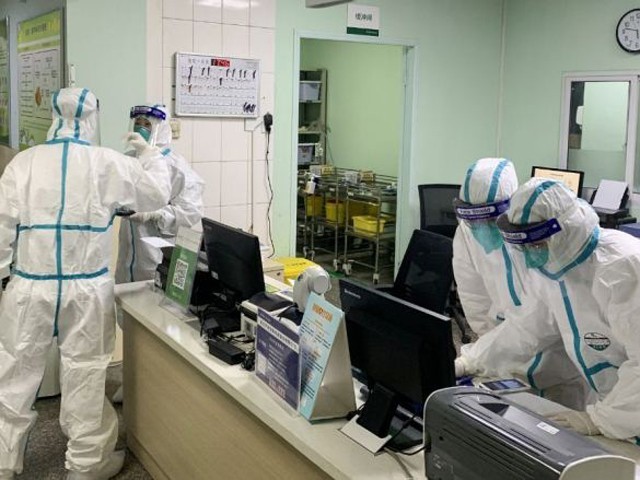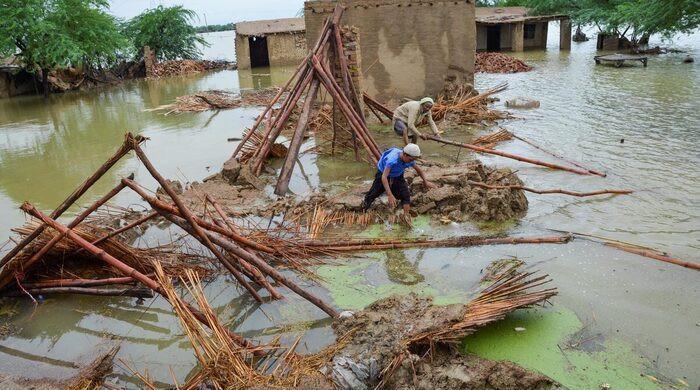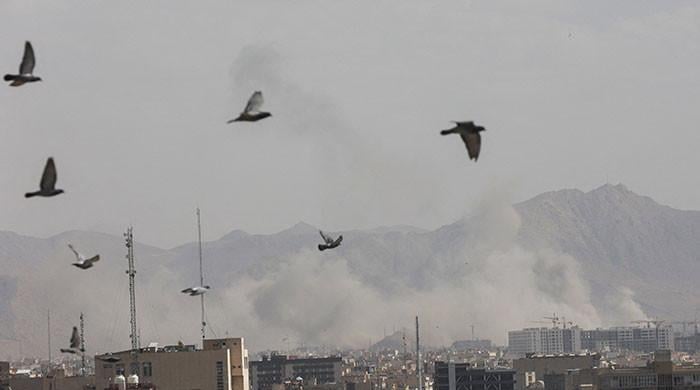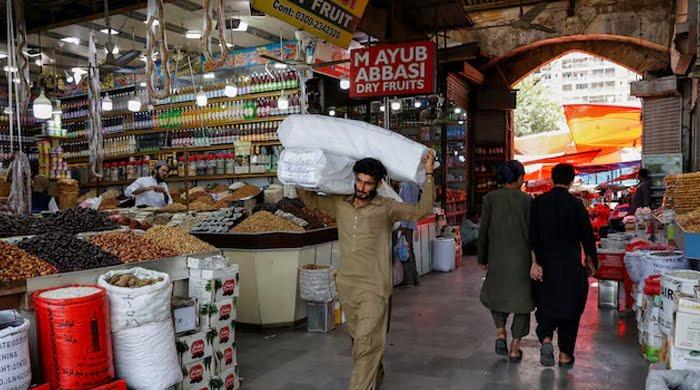The new normal: social degradation or a new way of life?
The coronavirus has not only brought the world to a standstill, but it has also changed our lifestyle
April 20, 2020

In this history of humankind, there was hardly a time ever when their movement came to a collective halt on earth. The coronavirus has not only brought the world to a standstill, but it has also changed our lifestyle. The virus has destroyed the economy and exposed loopholes in the healthcare system. Public places, offices, roads and streets look deserted, while the graveyards are host to hundreds of thousands of bodies. Humans have been forced to find new ways to carry on with their social life, cultural activities and religious practices, while adopting some inevitable changes. This new reality is being termed the ‘new normal’.
Technology and isolation
As youths are spending more time on social media in the quarantine period, the elderly people are feeling more isolated. Amid the virus spread, stopping the elderly people from meeting their near and dear ones is tantamount to killing them from inside. The void created by the social distancing has put them under stresses and strains. It is feared that this practice of staying away from the elderly parents would result in destroying the family structure.
No more touches
The touchscreen technology was introduced a few decades ago. The consumers had never thought that the touchscreen technology would lose its value. Instead of touching the screens of mobile phones and ATMs, people now want to do the needful work via the voice of face recognition technologies. Since the fingerprint machines can potentially spread the virus, their use in office for the attendance is becoming obsolete.
Some airports and companies having cutting-edge technology had already installed the face recognition system for the opening and closing of the gates. Despite a hike in the price, the companies are left with no option but to buy this technology.
Only a minimal use of currency notes had already been in practice in the developed countries. Now, the question is: will countries like Pakistan, India and Bangladesh also see a sharp decrease in the use of currency notes? We know that the virus can stay on paper for hours and thus the currency notes can be a source of its spread.
No entry
To detect coronavirus patients, different countries, including Russia, are using the face recognition technology. Some German and Chinese companies are using the temperature sensing technology to detect people having a fever. What is expected now is the use of technology to limit the movement of people suffering from contagious diseases.
Online meet-ups
The pandemic has forced the people to work at home and in isolation. The only safe way to continue with business conferences, board meetings, educational activities and any kind of communication is through the digital mediums. Be it an occasion of grief or happiness, a religious gathering or a political conference, a concert or an entertainment programme, the only way to carry it out is via mobile phone and internet. The coronavirus has brought about a digital revolution, and the people who invested in this sector earlier have struck gold. Virtual meetings and online meet-ups are neonormal.
Astounding apps
The mobile apps have become an inevitable part of our social life. Some apps have been designed to find the people suffering from the coronavirus. The experts are trying to introduce this technology across the world.
The app users will know who among them are infected with the virus, and when they met or were scheduled to meet the ones infected with the virus. If such apps are designed to identify the people suffering from all contagious diseases, such people will no more have a social life.
Investment in medical sector
After the spread of HIV, a cautious behaviour was promoted for having sexual relationships. It is likely that people will develop the habit of taking a better care of their personal hygiene in the coming days.
After the spread of viral diseases, there was a rise in investment in the medical sector across the world, including the United States. As long as viral diseases such as Anthrax, SARS, Ebola, MERS, AIDS, Zika made headlines, governments spent money to curb them, but later the budgets allocated for the purpose were reduced. Efforts are being made to produce vaccine against the coronavirus. However, if a vaccine is even produced, will it be available on an affordable price for the people of all economic classes?
The age of telehealth
The pandemic has just not exposed the loopholes in the healthcare system, but it has also kept people from visiting hospitals. People are avoiding to visit hospitals and clinics, fearing that they could contract the virus there. Thus, telehealth and telemedicine are becoming the neonormal.
Patients are being provided with home services for medical tests. It is possible that we would have home service for X-rays and MRI in the coming days.
Online shopping
In the last two decades, the trend of online shopping became popular, but the people still loved to visit superstores which were opened on vacant plots in cities. However, now these superstores have no option but to go online. From a box of matchsticks to a Mercedes, one can find almost everything via online shopping services.
Robots
Robots are immune to the virus and, therefore, they will inevitably play an integral role in the coming days. From the food supply services to the healthcare industries, the robotics technology will play an inevitable part in many sectors in the near future.
Lay-offs
Due to the coronavirus pandemic, around 25 million people have lost jobs in the United States, while the services of millions and millions have been terminated in Europe, the Middle East and South Asia.
Almost all countries are trying to revive the economy through bailout packages and making efforts to stop employers from sacking their staffers. Are we going to accept lay-offs as our new reality? Will this joblessness eventually result in lawlessness in society?
Conclusion
While the COVID-19 has been as a test for all us, it is also providing us an opportunity to find new ways and innovative solutions to our problems. It is helping us get rid of so-called traditions and non-productive activities.
The concept of a global village is likely to become a reality. However, the post-corona world will largely rely on the cutting-edge technology which would have a few advantages along with a lot of disadvantages. As we move towards normalising the new reality, we should be careful about what is termed neonormal, as it may end up normalising the abnormality.











